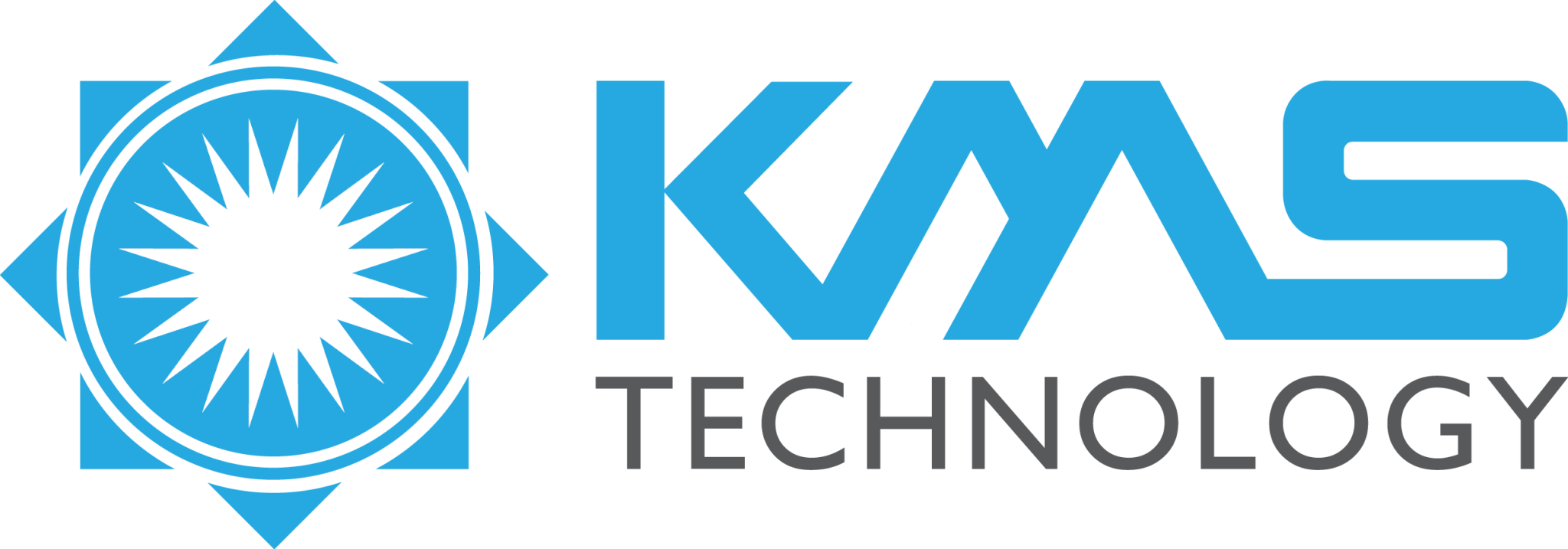3 Reasons to Start an Application Transformation Program
Application transformation is about embracing newer digital technologies to future-proof your business. According to Deloitte, companies that keep up with the latest technology have reported a 45% revenue growth compared to 15% for companies that don’t. What makes these companies different?
They grasp onto new technologies to enable transformation for their businesses. They accept and leverage differences to create growth and new opportunities. And they invest in digital solutions in the presence of disruption, taking bold action and pushing forward. Over time, business leaders that adopt an application transformation strategy are better positioned to take advantage of new opportunities for improved business outcomes. Here’s why.
Legacy Apps: The Achilles Heel of Innovation

The global application modernization services market size is projected to reach over $50 million by 2028. An enterprise application transformation program is critical to sustaining your business. However, many businesses are holding on to systems that have become cumbersome, unruly, and hard to update.
One of the biggest hurdles to modernization is that many of these systems are critical applications and oftentimes, core business processes rely on them. However, replacing these systems can be costly. Not only that, end-users who are accustomed to the existing application may be reluctant to move to another platform.
A few additional challenges with legacy apps include:
- Not Intuitive: Legacy software lacks the modern user interface customers expect. These systems typically do not have newer features and are not user-friendly, making job functions more difficult, not easier.
- Inability to Integrate With Newer Technology: Older systems don’t integrate with newer cloud services and cloud infrastructure. This leaves critical data trapped in legacy systems.
- Lack of Support: In most cases, the cost of maintaining an outdated system outweighs the benefits. Oftentimes, a software company will eventually stop supporting its products. When that happens, companies must spend time, money, and find internal resources to support the platform
- Unreliable: Legacy applications are notorious for system crashes. These crashes often lead to long downtimes, impacting your service level agreements with your customers.
What’s Keeping You From Starting an Application Transformation Program?

The impact of legacy systems extends beyond technology. Holding on to these systems can negatively impact your business. Take a look at the below questions. If you answered yes to any of them, starting an application transformation program is the way to go.
Am I ready to decrease my technical debt?
Technical debt refers to unplanned work a company needs to do in a future release cycle. Bugs, continuous upkeep, hardware replacement, and more can become costly. As a result, the company must divert money and time to address these issues. A recent McKinsey survey gives us more insight. In that report, CIOs reported that 10% to 20% of the technology budget dedicated to new products is diverted to resolving issues related to tech debt. More troubling still, that same report indicates that CIOs estimated that tech debt amounts to 20% to 40% of the value of their entire technology estate before depreciation.
Am I worried about business security?
Older technology increases the risk of data breaches and ransomware infections that could cripple operations. The impact on customers could be just as damaging, decreasing user loyalty and trust. Hackers will exploit any vulnerability they can find within your systems to steal customer data, deface your website, or damage your reputation and unfortunately, older systems are ill-equipped to prevent these types of issues.
Modern cybersecurity practices have changed dramatically over the last several years. Newer platforms offer more hardened controls to better secure business and customer data. For example, cloud platforms encrypt data stored on the systems. That way, malicious actors won’t be able to read the information if they were to access it. These platforms also encrypt data “in motion” to protect the information as it travels across the internet.
Another important security feature cloud platforms provide is fine-grained access controls. Meaning, that you can specify who has access to certain parts of the system. That way, access to all information is on a “need to know” basis. This protects information from the risk of insider threats, where an employee misuses their permissions to access sensitive information.
Do I want a competitive advantage when it comes to newer technology?
Adopting emerging technologies builds your credibility as a business and shows that you can keep up with the competition, market needs, and technological changes. An application transformation program will help you adopt technology such as artificial intelligence, machine learning, blockchain, and cloud computing. These technologies help you innovate and offer better customer experiences. As a result, you’ll gain improved customer retention rates.
Has your team spent a lot of unwarranted time maintaining old programs?
How much time does your team spend fixing bugs in legacy systems? Surely, there are higher priorities for your internal teams than fixing bugs in outdated systems. Unfortunately, legacy systems create bottlenecks for your business, which slow down progress for your internal and external users.
Consider this scenario:
Imagine you have a legacy accounting system. While it may still be functional, you have likely outgrown it. For example, you may have added personnel, which slowed the system or the process may have gotten more complex, and the system no longer supports the workflow. Another issue is that the data stored in these systems is often outdated or out of sync with other systems. All of this hampers team efficiency and gives you an inaccurate view of your finances.
With legacy system transformation, these challenges will no longer plague your organization. Modern systems grow along with your business and eliminate the need to continuously upgrade or perform maintenance for the system to keep pace. Cloud technology platforms automatically scale to add more resources such as computing, storage, or memory as your business grows.
Have there been unnecessary costs associated with old system updates?
Spend time evaluating your operating costs. You may be surprised at the money spent on:
- General Maintenance: Chances are you are hosting these apps in-house. If so, consider the costs of fixing broken servers. Don’t forget; the costs include parts and labor.
- Incompatibility Issues: Legacy systems may not work with current operating systems (OS). As a result, you may be spending time and money to support an outdated (and likely unsupported) operating system.
- Application Licensing: Even if an app is no longer supported, you may still have to pay for a license.
Why You Should Consider Working with an Application Transformation Partner

As a business owner, you don’t want to be caught off-guard by the emergence of new technologies or by the disruption of your industry. You don’t have to be an expert in all modern-day technologies but it is important to evaluate and implement the ones that will impact your business most. Working with an expert partner to adopt platform modernization comes with significant benefits.
1 – Expert Partnership
An application transformation program is necessary to meet today’s rapid rise in customer expectations. Working with experts like KMS has several benefits, such as:
- Working With Expert Partners: Experts like KMS can help guide you through all the components of application transformation, including pre-planning, cloud migration, AI adoption, continuous support once you’ve migrated to the cloud, and dependable maintenance.
- Improved Productivity: With a trusted partner, your software developers can focus on application development for new initiatives.
- Avoids Time and Cost of Recruiting Resources: Working with an expert like KMS means you won’t need to recruit additional personnel. It also eliminates the need to spend time or money on training or onboarding new employees.
2 – Increased Revenue Streams
Application transformation programs help you create new revenue streams. We live in an age of digital immediacy. This fact has transformed how people communicate, shop, and consume information. Customers want the best possible experiences as fast as possible. Application transformation is necessary to improve the user experience and meet the rapid rise in customer expectations. The more value your app provides, the better it is for your business.
Modern systems help you innovate and create new customer experiences. Newer systems can leverage what is known as Application Programming Interfaces (APIs) to integrate with other systems and build cloud-native applications. APIs allow smooth and efficient communication between various systems. For example, an app that allows users to book travel plans can integrate with the airline’s API to show the cheapest flights. The customer won’t have to manually search each airline’s flight costs. The API connects with each airline’s system. The app can combine the information for a seamless customer experience. When you use modern technology such as APIs you can build new systems to support new business models.
3 – Improved Software Performance
An application transformation program helps you modernize your systems. With more modern software, you’ll see improved software performance, which means your systems won’t be susceptible to outages, crashes, bugs, etc. This means that as you gain new customers, you can easily add new servers and other resources to accommodate the load without impacting performance. When you update legacy technology, you also get improved security. Newer systems use advanced security protocols to defend against cyberattacks. Lastly, the better performance also leads to reliability. A reliable system ensures the application is always available when users need it.
Improving your system’s performance also has business benefits. Investing in your systems will provide you with greater operational efficiency and accuracy. As an example, you will be able to collect data more efficiently and analyze that data to make business decisions.
Let KMS Guide Your Application Transformation Program

Digital resilience and agility are what make application transformation so powerful. An agile approach means that businesses can respond to change more quickly and pivot when necessary. With an agile approach to application transformation, enterprises can make changes to software more easily and frequently, as needed. Overall, starting an application transformation program helps strengthen your business posture.
KMS Technology has proven experience in application integration of modern technology. Our experts will help develop a plan and walk you through all aspects of the project. Our teams help you get the most value out of application transformation programs to give you a competitive edge. We work to understand your goals and are committed to your success.
Schedule a free consultation to discuss your enterprise application transformation needs.






